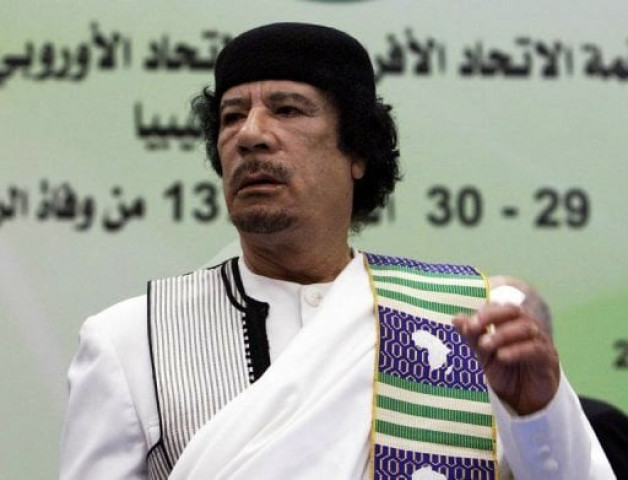International court prosecutor seeks Qaddafi’s arrest warrant
Accuses the Libyan leader, his son and spy chief of crimes against humanity.

The International Criminal Court prosecutor on Monday requested arrest warrants for Libya’s Muammar Qaddafi, his son Saif al Islam and the country’s spy chief on charges of crimes against humanity.
Prosecutor Luis Moreno-Ocampo said civilians were attacked in their homes, demonstrations were repressed using live ammunition, heavy artillery was used against funeral processions and snipers placed to kill those leaving mosques after prayers.
The prosecutor’s office had received calls from senior officials in the Qaddafi government in the past week to provide information. Prosecutors also spoke with eyewitnesses to attacks and assessed evidence from 1,200 documents, plus videos and pictures.
“We have strong evidence, so strong evidence,” Moreno-Ocampo said. “We are almost ready for trial.”
“Qaddafi ruled Libya through fear and Libyans are losing that fear now,” he said.
The requests for arrest warrants follow UN Security Council referral of the violence in Libya to the Hague-based court in February and after Moreno-Ocampo said earlier this month he would seek three arrest warrants for the pre-determined killing of protesters in Libya.
“The office gathered direct evidence about orders issued by Qaddafi himself, direct evidence of Saif al Islam organising the recruitment of mercenaries and direct evidence of the participation of (Abdullah) al-Senussi in the attacks against demonstrators,” Moreno-Ocampo said at the ICC.
Abdullah al-Senussi, Libya’s spy chief, is Qaddafi’s brother-in-law. Moreno-Ocampo said his office had documented how the three held meetings to plan the operations and that Qaddafi had used his “absolute authority to commit crimes in Libya”.
Despite Nato bombing operations intended to protect civilians, Libya has been plunged into civil war, seriously complicating efforts to arrest ICC suspects.
In addition, the ICC has no police force and must rely on states to enforce any arrests — a strategy which has failed to produce results in the case of Sudanese President Omar Hassan al Bashir, who is wanted for genocide in Darfur.
Libya is not a member of the ICC, but Moreno-Ocampo said Libyan authorities had primary responsibility to make arrests and that arrests are the best way to protect civilians.
Truce offered
Qaddafi’s regime offered a truce in return for an immediate Nato ceasefire a day before the International Criminal Court considers arrest warrants for rights abuses in Libya.
Qaddafi’s prime minister proposed the truce Sunday to the visiting UN special envoy to Libya, Abdul-Ilah al-Khatib, as an anti-regime revolt entered a fourth month.
Published in The Express Tribune, May 17th, 2011.



















COMMENTS
Comments are moderated and generally will be posted if they are on-topic and not abusive.
For more information, please see our Comments FAQ